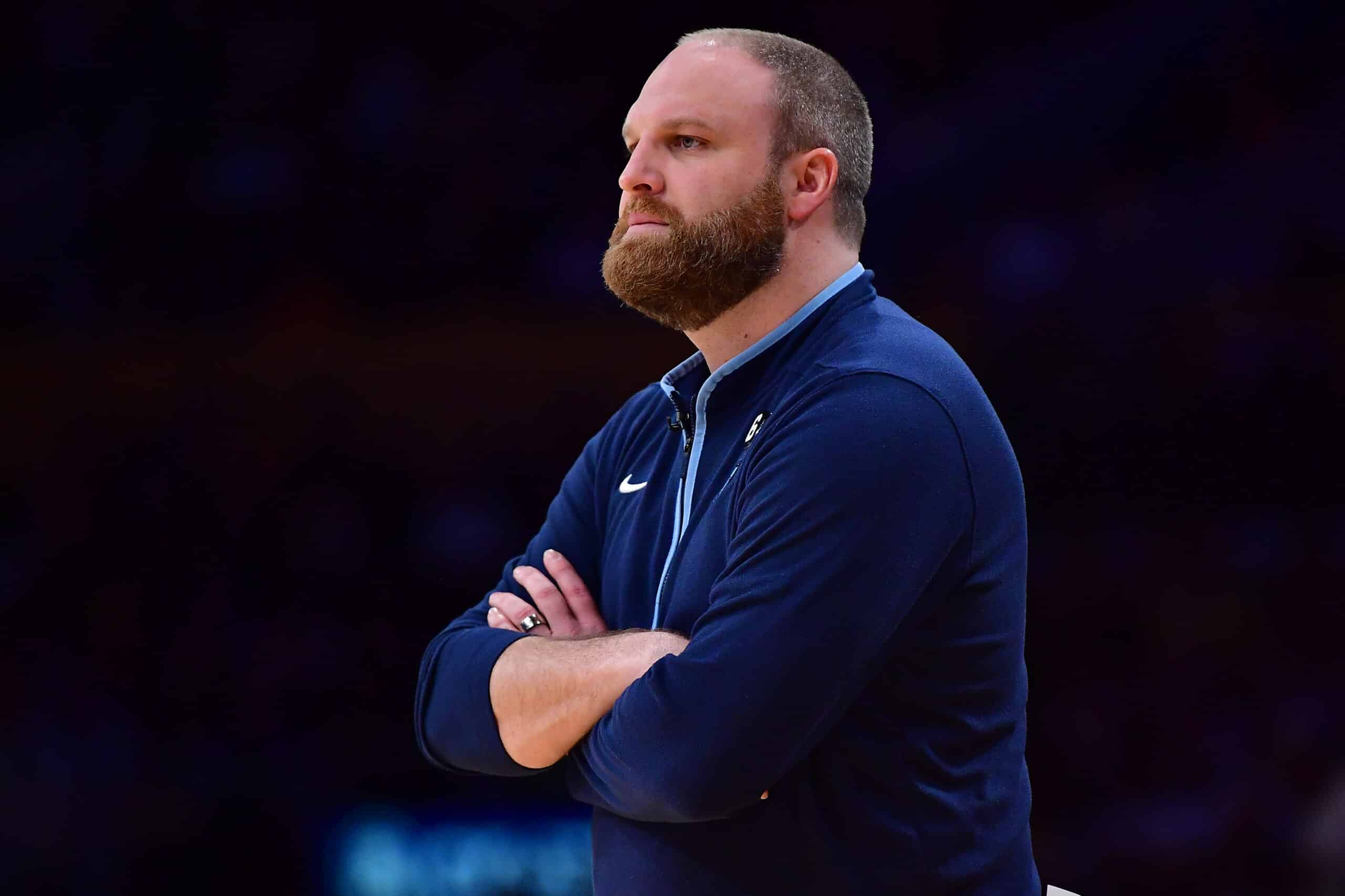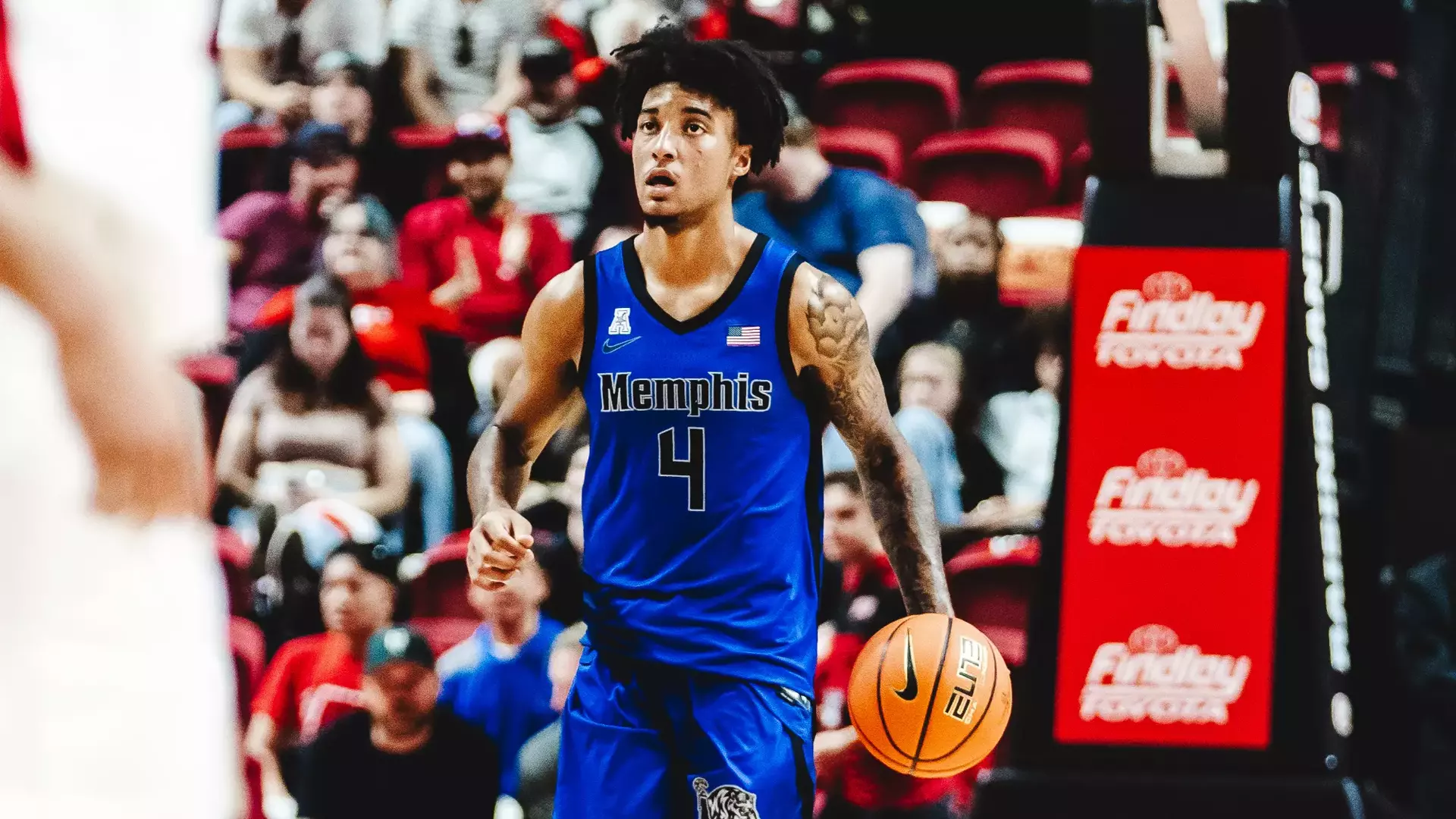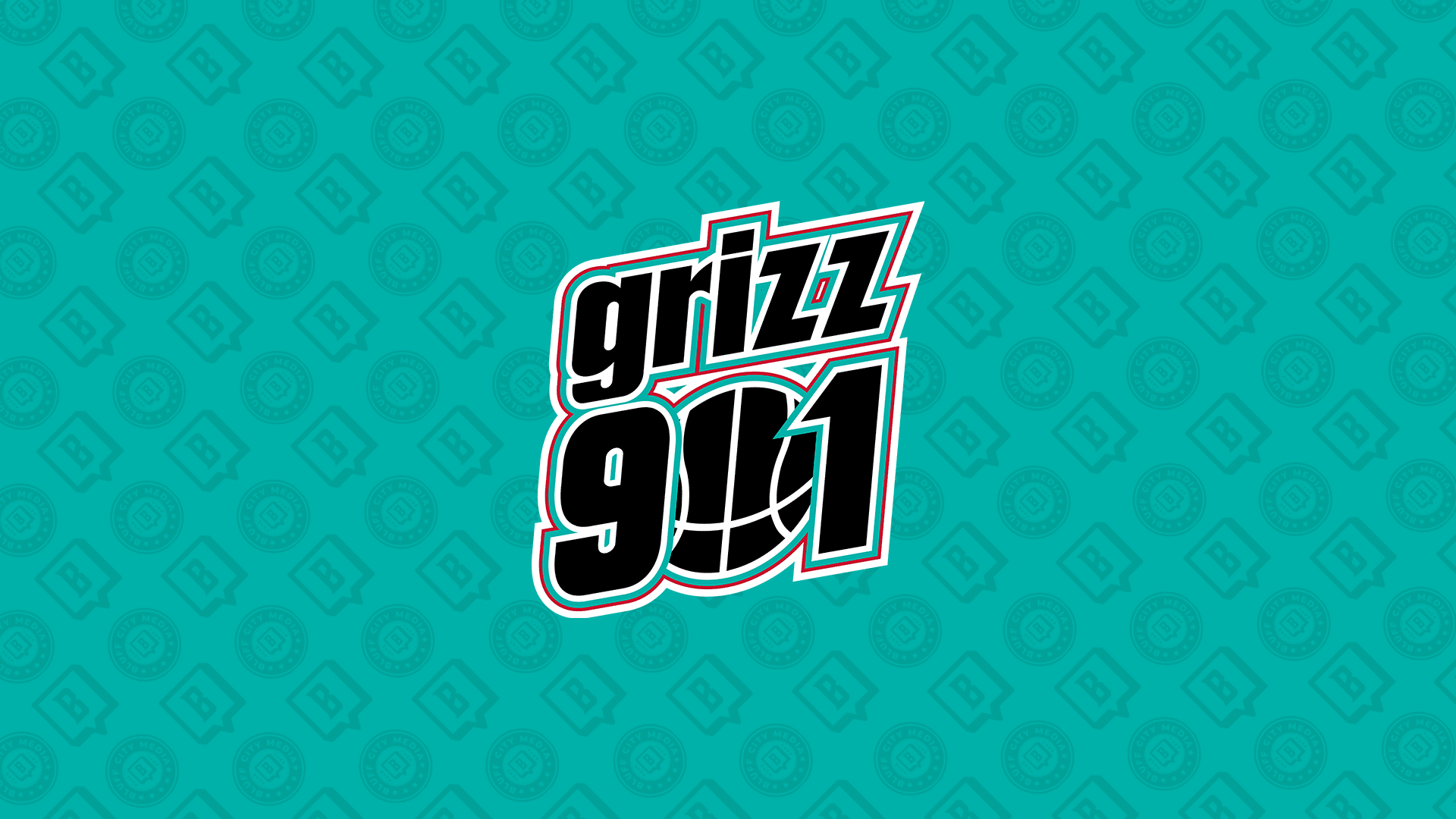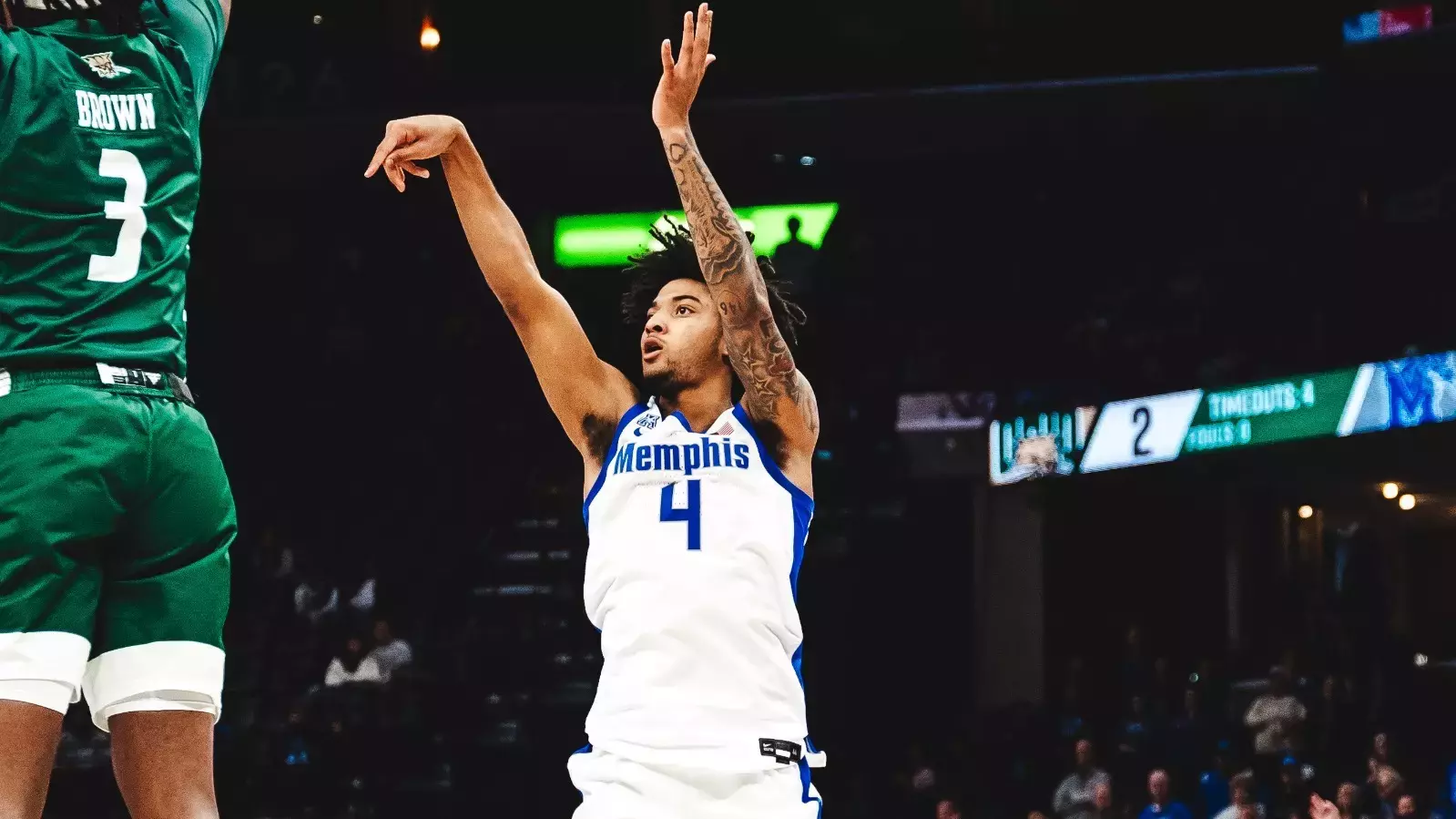Join Today
Taylor Jenkins is on notice


For a coach – any coach worth their salt at least – when failure occurs, the finger of blame should first and foremost be pointed inward. It is your team, your program. You serve many roles as a coach – leader, teacher, at times father figure, tactician, manager of potentially combustible personalities, and much more. Even when at the professional level, among adults, these traditional titles within the title hold true.
They say that a team is a reflection of their coach. When you fall short, that can be a jarring statement and unpleasant reality. But it doesn’t change the amount of truth in it.
For the Head Coach of the Memphis Grizzlies Taylor Jenkins, he has largely lived well in this difficult space. He’s led a young team – one of the youngest in the NBA over his first four years at the helm – with a surprising level of self-awareness and a steady hand that most before him haven’t displayed when so young (for the position of NBA Head Coach) and inexperienced. He navigated the Bubble/pandemic and the George Floyd murder/subsequent protests admirably, listening and learning from his players while developing stronger relationships. He earned trust that directly translated to – at least until this postseason – linear success.
2019-2020 – Loss in play-in tournament
2020-2021 – Win in play-in tournament, loss in 1st round
2021-2022 – #2 seed (56-26, tied for best in Grizzlies history), loss in 2nd round
2022-2023 – #2 seed (51-31, loss in 1st round)
That is 107 regular season victories across the last two seasons while having two of your three best players on rookie contracts (Ja Morant and Desmond Bane). Over that span the team has consistently ranked among the best in the NBA in various categories – particularly defensive rating and overall efficiency differential, both top-5 over the last two seasons per Cleaning the Glass. They at various times have been among the best in forcing turnovers and deflections, blocks, rebounds, and transition offense.
That’s not to say there isn’t room for growth. The halfcourt offense of Memphis, for example, has been below average the entirety of the Jenkins Era. But that issue goes beyond Jenkins – only one time in the last decade (the 2014-2015 season) have the Grizzlies had a halfcourt attack ranked in the top half in the league. In many ways, Jenkins and his staff has done more with less than any coach in Memphis Grizzlies history. With a roster that should’ve been – and in many ways except losing was – rebuilding, Jenkins won.
That deserves credit and praise. But as one chapter of this era ends and another approaches, it is time for Jenkins to understand that what was once acceptable no longer is. It’s time to adapt to this new moment, or perhaps unfairly say goodbye to the culture and franchise he has helped define and rebuild.
Because coaches get blamed for failure – fairly or not. And it’s a lot easier to fire a coach than a player.
Jenkins, of course, understands this. He knows how far he and the team he leads has come in these last four years. But at the same time, he also understands they still have a ways to go – and there are some courses that need to be corrected.
On the floor, in order for the team to reach their stated goal of championship contention (the Western Conference Finals would be a good start) their halfcourt offense must improve. That involves personnel change, sure – but it also starts with Jenkins putting his players in better positions to be successful. Spacing, variety in sets, movement off-ball and less isolation scoring are good starts. When the Memphis Grizzlies swing and cut to the basket/find the great shot, not the good one after an extra pass, they’re a NBA Finals threat.
When they stand around and watch Ja Morant handle the ball then run a base pick and roll hoping Ja’s penetration of the paint where Anthony Davis looms leads to an open roll man or shooter for consecutive possessions, they lose to the Los Angeles Lakers in six games. It’s not THAT simple – context matters, and without Luke Kennard, Steven Adams, and Brandon Clarke winning Game 6 in L.A. was going to be a Herculean feat. But in a way, it is – getting in that position in the first place, especially after a tough game 4 loss, starts with coaching – whether in reality it should or not.
Off of the court is where even more growth will have to come. Because the way the team has been built in terms of culture must shift. Being free to be yourself – audacious, talkative, and all that comes with calling out opponents of all types – has a price, and the Memphis Grizzlies paid it this year, injuries or no injuries. The time to talk about wanting to win has passed. The time to actually do what it take has come. Part of that is roster moves – replacing Dillon Brooks being the major one that will happen.
The other part is altering expectations and making it clear that if the players are not willing to meet this new challenge, they will be held accountable for that. Regardless of star status.
And therein lies the challenge for Taylor Jenkins. How do you rein in the behavior of a Ja Morant away from the court – how much of that in the NBA, working with grown men, is his responsibility? 449 other NBA players aren’t on Instagram holding guns. The responsibility for that starts with Morant. But coaches cultivate culture and define expectations. When spoken to about a one-time mistake, it should’ve been the end. It wasn’t. And within what Jenkins can control, clearly the message was not received.
What does that say about what Jenkins and Memphis has built? It’s too soon to tell. But this coming season will go a long way, on and off the floor, to determining that.
In the last several weeks, four of the winningest coaches of the last several seasons – Nick Nurse, Mike Budenholzer (Jenkins’ mentor), Monty Williams, and Doc Rivers – have been relieved of their duties. All of them have been to the NBA Finals, and several won it. No one – right or wrong – is immune to being fired if it is believed the team has gotten as far as they can with that person at the helm. And no amount of success can stop that from happening, if momentum builds too far in that direction.
Taylor Jenkins, for all his unlikely success, finds himself on the wrong side of that pendulum swing for the first time in his Grizzlies career. And if, like Budenholzer to an extent, he is unable to make adjustments to philosophy, he will be the next very good-to-great coach to find himself jobless.
The finger of blame, should Memphis fall short again, will be pointed at Jenkins. And like other coaches before him, he may watch the fruits of his labor be enjoyed by the “next guy” instead of him.
It’s not fair. But it is coaching.
Share
You can subscribe to more Insider content to get even more Memphis Grizzlies and Memphis Tigers coverage here.
Bluff City Media now covers every sport in the city of Memphis. Follow our Tigers, Grizzlies, and Soccer coverage on Twitter.
Follow Bluff City Media on Instagram and TikTok - and subscribe to our Bluff City Media YouTube Channel.
Make sure you check out all our podcasts that focus on Grizzlies, Tigers, Soccer, and more!
The Daily Grind Ep. 195: Flying V Down


RECAP: Memphis basketball wins slug-fest over San Francisco


The Daily Grind Ep. 194: Jekyll and Hyde


Ethical Basketball | Philadelphia 76ers @ Memphis Grizzlies Live Postgame Show | Grizz 901


What to expect when Memphis basketball meets San Francisco, plus a game prediction




Memphis will fall short again because Taylor Jenkins is our weakest link come playoff time, followed closely by Ja’s health.
We shoulda bounced him straight after the 1st round loss to the Lakers.
I believe a better coach could get a better result from both Ja and Dillon.
It seems all too convenient to throw Dillon under the bus and blame Ja’s immaturity than for Jenkins to own up and say it was all on him to advance further this year then last.
Grizz have gone backwards. It will continue to do so under his tenure.
Its high time he got his marching orders so don’t be surprised if he loses the locker room, all respect from the team and gets shown the door early to mid-season.
Under .500 after 20 games would be the catalyst…IMHO.